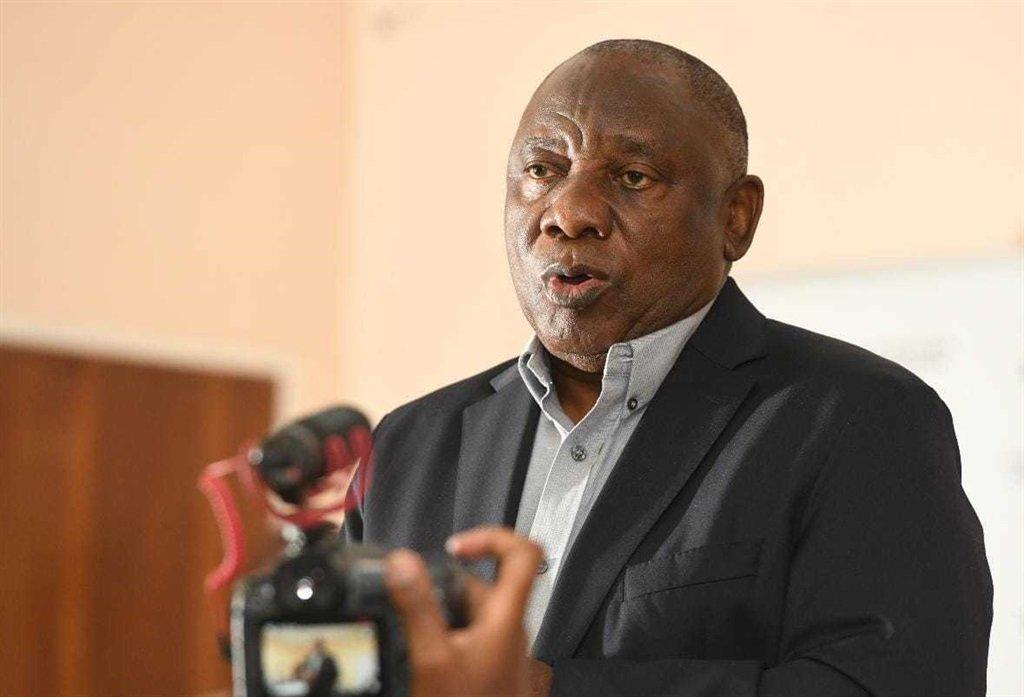Africa-Press – South-Africa. Advocate Mahlape Sello SC will replace legal academic and political commentator Richard Calland on the independent panel to determine whether President Cyril Ramaphosa has a prima facie case to answer to with regard to Phala Phala.
After National Assembly Speaker Nosiviwe Mapisa-Nqakula announced the three-person panel – former Chief Justice Sandile Ngcobo, former judge Thokozile Masipa and Calland – the DA and EFF raised objections.
The objections revolve around Calland’s perceived bias, in his work as a political commentator, towards Ramaphosa.
Calland had been nominated by GOOD.
Mapisa-Nqakula then obtained a legal opinion.
DA, EFF object to independent panel to determine case against Ramaphosa on Phala Phala
“Having considered all the submissions from the political parties, as well as the legal opinion, the Speaker was of a view that, while there exists no factual basis to corroborate any perceived or apprehension of bias, the integrity of the work of the panel would be best served if Prof Calland is excluded from the panel,” reads a statement from Parliament’s spokesperson Moloto Mothapo.
Calland accepted Mapisa-Nqakula’s view that, given the objections raised, it might not be in the best interests of the Section 89 process for him to continue on the panel.
However, Calland rejected any notion that he was biased.
In a statement, Calland said:
“And I would do so regardless of anything that I have said or written in the past in my role as a political commentator.”
Calland added that he had devoted his life to constitutional democracy, accountability and the rule of law.
“Accordingly, I do not want unnecessary controversy over my appointment to divert attention away from the real issues at stake, or the possibility of undue delay arising from it, to clutter or otherwise impair the integrity of such an important constitutional process.”
Calland thanked GOOD for his nomination and wished Parliament all the best for the “landmark process”.
“The Speaker sincerely thanks Prof Calland for making himself available for this important task and for his understanding regarding the decision,” reads Moloto’s statement.
Parliament then announced that Mapisa-Nqakula had appointed Sello, who recently served on the State Capture Inquiry.
The DA welcomed Calland’s removal from the panel.
“This is a victory for the institution of Parliament and indeed the legitimacy of the Section 89 Inquiry. Professor Calland’s inclusion would have been in contravention of Rule 129G of the National Assembly, in that panel members must be independent and impartial,” DA chief whip Siviwe Gwarube said in a statement.
“Calland – while an expert in the field – has entered the political fray by routinely making his political views public. His inclusion would have been a spectacular error in judgement on the part of the Speaker and the institution.”
The EFF also welcomed the decision.
“The EFF is vindicated and will continue to keep a watchful eye on all of those tasked with investigating the money laundering, kidnapping, torture and the use of state resources to conceal the crimes committed by Cyril Ramaphosa,” reads the EFF’s statement.
ANC opposed to ad hoc committee probe into Phala Phala saga
“We will make sure that no investigative, financial or legislative institution is corrupted or compromised, and ultimately ensure that Ramaphosa is removed from office and impeached, as he has disgraced South Africa and breached his oath of office.”
The panel was appointed two weeks ago, but the date on which the panel will commence its work is still to be determined. Once that date has been set, it will have 30 days to conclude its work.
It must make a recommendation whether sufficient evidence exists to show Ramaphosa committed any of the violations specified in the motion.
In its submission for a motion, the ATM said: “It is common cause that [former spy boss] Mr Arthur Fraser has submitted evidence at the Rosebank police station where the president is implicated in serious crimes, including bribery, money laundering, kidnapping, breaching of customs and excise laws, breaching of SARS regulations, breaching the Prevention of Organised Crime Act, and defeating the ends of justice, to mention but a few.”
The party also contended that Ramaphosa violated Section 83(b) of the Constitution, which enjoins him, as head of state, to uphold, defend and respect the Constitution as the supreme law of the Republic.
It further argued that Ramaphosa violated Section 96(2)(a) of the Constitution, which states Cabinet members and deputy ministers may not “undertake any other paid work”.
The rules require the panel to be independent and subject only to the Constitution, the law and the National Assembly rules on Section 89, which it must apply impartially and without fear, favour or prejudice.
It must immediately provide Ramaphosa with copies of all information available to it, relating to the inquiry, and provide him with a reasonable opportunity to respond, in writing, to all relevant allegations against him.
Ramaphosa returns to Parliament over Phala Phala questions
The panel cannot have oral hearings and must limit its inquiry to the information placed before it by MPs.
In its report, it must include any findings, with its reasons, upon which its recommendations are based. It must also include a minority view, if there is one.
The panel’s recommendation will be put to a vote in the National Assembly.
A majority is required to proceed with a Section 89 Inquiry – similar to what Public Protector Busisiwe Mkhwebane is currently undergoing.
If that committee recommends Ramaphosa’s removal, a two-thirds majority would be required.
If that happened, he would lose all the benefits bestowed on former presidents, and he would not be allowed to occupy public office again.
Last month, when he refused to answer a question on Phala Phala in the National Assembly, Ramaphosa undertook to cooperate with the Section 89 process.
For More News And Analysis About South-Africa Follow Africa-Press






